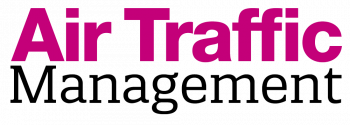The Board of Directors of ENAIRE, Spain's air navigation service provider, approved the Strategic Innovation Plan, one of the 11 plans that comprise the company's Strategic Plan, the 2025 Flight Plan.
The Strategic Plan approved aims to invest in research, development and innovation (R&D) an annual average of more than 20 million euros (20.6) for the period from 2021 to 2025, which is an increase of 16% compared to ENAIRE's investment in the previous five years, and which will total 103.1 million euros throughout the entire period. With this plan, ENAIRE consolidates its position as one of the leading drivers of innovation at the Ministry of Transport, Mobility and Urban Agenda (MITMA). In fact, ENAIRE's effort in innovation is currently around the average of the 27 countries of the European Union.
The Strategic Plan is structured around two major initiatives: the implementation of an Innovation Management System and a partnership with CRIDA as the driving force behind this innovation.
A management system
ENAIRE is an eminently innovative company and a greater systematisation in innovation management will help to promote synergies and more efficient management of all the R&D activity. ENAIRE's Innovation Management System seeks to boost this systematisation by working both on Knowledge Management and Innovation Project Management.
CRIDA, an engine of innovation
ENAIRE will reinforce its current cooperation with CRIDA in R&D activities and jointly develop solutions of interest for future implementation in its air traffic management (ATM) system. CRIDA A.I.E. (Centre of Reference for Research, Development and Innovation in ATM) is a non-profit Economic Interest Group that is majority owned by ENAIRE (66.66%), with minority holdings by INECO (16.7%) and the Polytechnic University of Madrid (16.7%).
Its mission is to improve the efficiency and performance of the Spanish air traffic management system by developing R&D ideas and projects that provide solutions whose profit can be quantified through system performance indicators, while considering the Spanish system as an integral part of a global system.
Four main areas of R&D
Both the Innovation Management System and CRIDA work on the four main areas of R&D for ENAIRE, which are as follows:
- Internal Innovation. The main projects include Startical (constellation of satellites to provide voice and data communications services and ADS-B surveillance), iTEC (alliance with the air navigation providers of Germany and the UK, and other European providers, to develop the interoperability of air traffic systems), iFOCUCS (ENAIRE's new air traffic controller position), U-Space (advanced use of drones and Urban Air Mobility), Flow Tools (ecosystem of tools designed specifically for and by air traffic units), Digital Tower and HERON (automation of processes in the company).
- Innovation within the SESAR framework. The SESAR (Single European Sky ATM Research) programme includes the R&D phase associated with modernising air traffic management in Europe as part of the Single Sky. ENAIRE has been a member of the SJU (SESAR Joint Undertaking) since 2008 and has actively participated in the SESAR1 and SESAR2020 programmes. It is currently a member of the new S3JU agency, which will manage the SESAR3 Programme within the Europe Horizon framework.
- Open innovation. The goal in this case is to contribute talent to innovation outside of ENAIRE by funding grants, start-ups, etc.
- Technology Surveillance and Competitive Intelligence. ENAIRE has established an Innovation Observatory that supports knowledge management and the integration of new technologies
Data analytics
ENAIRE's Board of Directors has also approved the awarding of a data analysis contract to Telefónica Soluciones de Informática y Comunicaciones de España for 1.1 million euros, excluding taxes. The contract period is 12 months. Data governance and analysis will help us have a single and dependable source of data at the company that will make the analyses conducted at the company more reliable. It also democratises data, which is made available to professionals so they can do their own analyses, which will improve the work and performance of ENAIRE staff.
